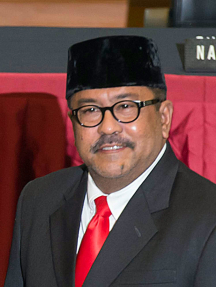Economic Factors Not Sole Cause of Jakarta’s Poverty
- VIVAnews/Ikhwan Yanuar
Jakarta, VIVA – Jakarta’s Deputy Governor Rano Karno emphasized the need for intensive efforts to reduce poverty rates to 0.5-0.8 percent and achieve a Gini ratio of 0.29-0.32 by 2045. This aligns with Law No. 59 of 2024 on the National Long-Term Development Plan (RPJPN) 2025-2045.
Rano stated that achieving these targets demands serious commitment from all regions, including Jakarta. He expressed this during a forum at Jakarta City Hall on Wednesday, addressing poverty alleviation strategies.
The forum focused on finalizing the Regional Poverty Reduction Plan (RPKD) 2025–2029 and the 2026 Annual Action Plan (RAT) for poverty alleviation. It served as a platform to refine solutions and prioritize programs.
Rano highlighted that poverty in Jakarta stems from more than just economic issues. Structural challenges like unequal access to education, inadequate housing, and rapid urbanization also play significant roles.
Additionally, national and global socio-political dynamics and fragmented data systems hinder effective poverty reduction efforts. Rano stressed the need for targeted interventions to reach vulnerable groups.
He advocated for a convergence approach and a prosperity graduation scheme as the foundation for planning and evaluating poverty programs. These strategies aim to empower communities rather than merely providing aid.
The 2025–2029 period is a critical transformative phase for achieving Indonesia’s Golden Vision 2045, according to Rano. Jakarta’s government must ensure policies foster self-reliance among the poor and vulnerable.
Rano hopes the forum will unify efforts, sharpen plans, and produce impactful recommendations. This will enhance the role of the Poverty Reduction Coordination Team (TKPK) in cross-sectoral coordination.
To ensure program convergence, Rano instructed the Assistant for People’s Welfare to draft a Governor’s Instruction for optimizing poverty alleviation efforts. This follows Presidential Instruction No. 8 of 2025 on extreme poverty elimination.
He also directed regional heads to align RPKD and RAT programs with strategic goals, emphasizing meaningful monitoring and partnerships with non-governmental entities to address intervention gaps.


























